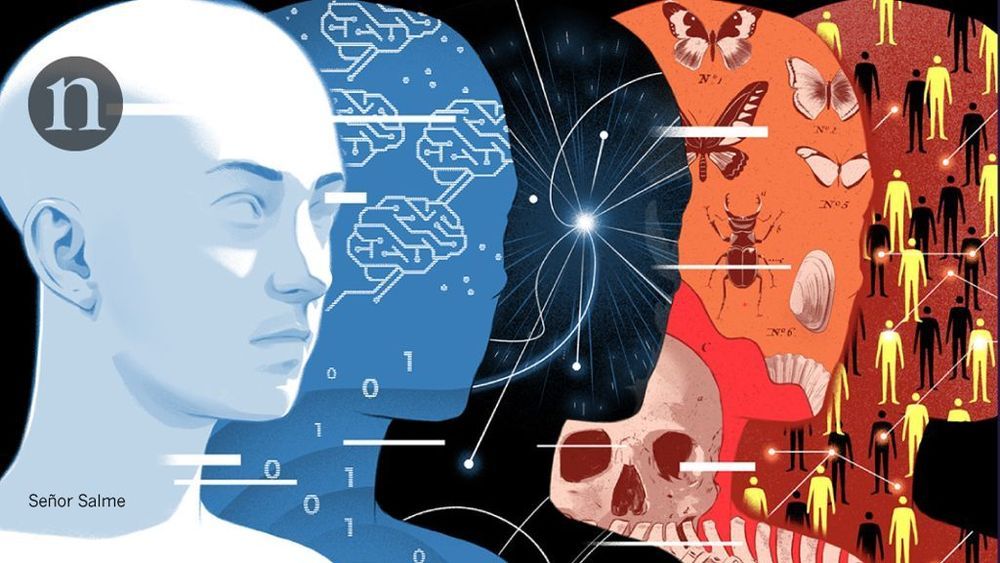In the iconic frontispiece to Thomas Henry Huxley’s Evidence as to Man’s Place in Nature (1863), primate skeletons march across the page and, presumably, into the future: “Gibbon, Orang, Chimpanzee, Gorilla, Man.” Fresh evidence from anatomy and palaeontology had made humans’ place on the scala naturae scientifically irrefutable. We were unequivocally with the animals — albeit at the head of the line.
Biological advances have repeatedly changed who we think we are, writes Nathaniel Comfort, in the third essay of a series marking Nature’s anniversary on how the past 150 years have shaped science today. Biological advances have repeatedly changed who we think we are.
